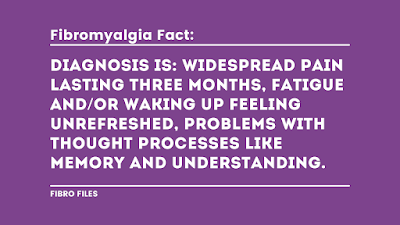The thyroid is a small but incredibly influential gland located in the front of the neck. Those who are familiar with this powerful piece of anatomy know that it has a significant impact on numerous regions including the metabolism, brain, and weight regulation. Because of the thyroid’s broad influence, dysfunction of this system can result in the development or continuation of many serious conditions such as fibromyalgia.
Unfortunately, the relationship between the thyroid and fibromyalgia is frequently overlooked.
I personally had hypothyroidism, or low thyroid, diagnosed many years before I developed fibromyalgia. In fact it was my thyroid doctor who diagnosed me with fibromyalgia. As I was diagnosed with Hashimoto's thyroiditis quite young I always suspected new symptoms were connected with it and went to check with my thyroid specialist. This time he examined me, did the blood tests, and then later reported that it was not my thyroid that was causing the new feelings of stiffness and increased fatigue but most likely fibromyalgia.
I personally had hypothyroidism, or low thyroid, diagnosed many years before I developed fibromyalgia. In fact it was my thyroid doctor who diagnosed me with fibromyalgia. As I was diagnosed with Hashimoto's thyroiditis quite young I always suspected new symptoms were connected with it and went to check with my thyroid specialist. This time he examined me, did the blood tests, and then later reported that it was not my thyroid that was causing the new feelings of stiffness and increased fatigue but most likely fibromyalgia.
 |
| I have both hashimoto thyroid and fibromyalgia, the thyoid condition was diagnosed first. |
Thyroid dysfunction shares many similarities with a hypothalamic condition known as fibromyalgia. Those suffering from hypothyroidism, and to a lesser degree hyperthyroidism, frequently develop fibromyalgia or at the very least exhibit symptoms similar to it.
Is the HPA Axis the Missing Link?
The connection between thyroid disease and fibromyalgia is an important part of understanding both conditions.
Fibromyalgia is caused by dysfunction of the hypothalamus.
The hypothalamus exerts substantial influence over essential bodily functions including sleep, hormone balance, temperature, and autonomic nervous systems that regulate blood pressure, blood flow, and the transport of food through the gut.
As part of the HPA axis, the hypothalamus works together with the pituitary, adrenals, and the thyroid to regulate hormones throughout the body.
Fibromyalgia is caused by dysfunction of the hypothalamus.
The hypothalamus exerts substantial influence over essential bodily functions including sleep, hormone balance, temperature, and autonomic nervous systems that regulate blood pressure, blood flow, and the transport of food through the gut.
As part of the HPA axis, the hypothalamus works together with the pituitary, adrenals, and the thyroid to regulate hormones throughout the body.
The components of the HPA are closely interrelated meaning that malfunction in one area can have a significant negative impact on the others.
Dr. J. Teitelbaum, MD, is an expert in chronic conditions, specifically chronic fatigue syndrome and fibromyalgia. He believes that hypothyroidism and fibromyalgia are linked through the origin of the dysfunction.
Dr. J. Teitelbaum, MD, is an expert in chronic conditions, specifically chronic fatigue syndrome and fibromyalgia. He believes that hypothyroidism and fibromyalgia are linked through the origin of the dysfunction.
The thyroid is highly influential over the hypothalamus and pituitary. Therefore, reduced thyroid activity can contribute to fibromyalgia-like symptoms and may increase the risk of developing the condition itself.
Many symptoms are shared between hypothyroidism and fibromyalgia including fatigue, exhaustion, depression, brain fog, and a variable severity of muscle and joint pain.
Regardless if thyroid malfunction is a co-factor of fibromyalgia, a prominent component of its symptoms is reduced thyroid function.
When thyroid disease is left untreated, already reduced tissue levels of thyroid hormone can continue to decrease resulting in greater symptom severity.
Many symptoms are shared between hypothyroidism and fibromyalgia including fatigue, exhaustion, depression, brain fog, and a variable severity of muscle and joint pain.
Regardless if thyroid malfunction is a co-factor of fibromyalgia, a prominent component of its symptoms is reduced thyroid function.
When thyroid disease is left untreated, already reduced tissue levels of thyroid hormone can continue to decrease resulting in greater symptom severity.
Thyroid hormone, specifically T3, is an essential part of maintaining cellular energy level and activity. Inhibited levels of thyroid hormone contribute to reduced mitochondrial energy levels resulting in poor cellular activity.
Both the hypothalamus and pituitary are particularly sensitive to cellular fatigue.
As cellular energy levels decrease, the risk of developing fibromyalgia increases. Therefore, it is important to assess properly assess the thyroid and provide treatment as necessary if a patient is suffering from fibromyalgia.
Both the hypothalamus and pituitary are particularly sensitive to cellular fatigue.
As cellular energy levels decrease, the risk of developing fibromyalgia increases. Therefore, it is important to assess properly assess the thyroid and provide treatment as necessary if a patient is suffering from fibromyalgia.
Supporting the Thyroid to Resolve Fibromyalgia
The link between hypothyroidism and fibromyalgia is strong. Therefore, if you are a thyroid patient experiencing symptoms of fibromyalgia it is quite possible that your thyroid is malfunctioning or is not being treated effectively.
Dr. John Lowe, one of the leading practitioners in the field of fibromyalgia research, found that the chronic symptoms associated with hypothyroidism and fibromyalgia were partially or entirely due to lack of or under treatment of the thyroid.
If you have been diagnosed with fibromyalgia but have not had your thyroid assessed or treated, speak with your doctor about testing and optimizing your thyroid.
If you have been diagnosed with fibromyalgia but have not had your thyroid assessed or treated, speak with your doctor about testing and optimizing your thyroid.
ADDITIONAL RESOURCES.
Want to learn more about the thyroid Fibromyalgia connection, or do more medical research into the topic? Here are some additional resources:
Fibromyalgia in patients with thyroid autoimmunity: prevalence and relationship with disease activity. 2017 PUBMed article




